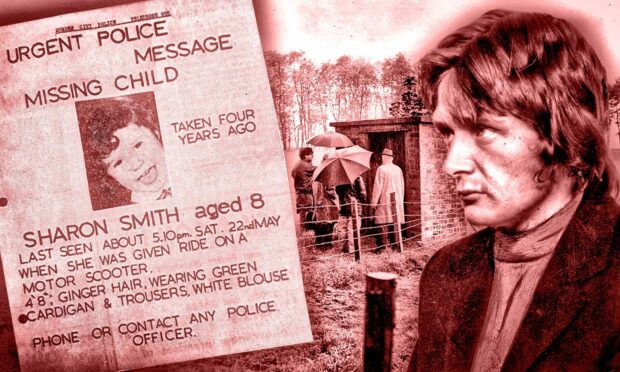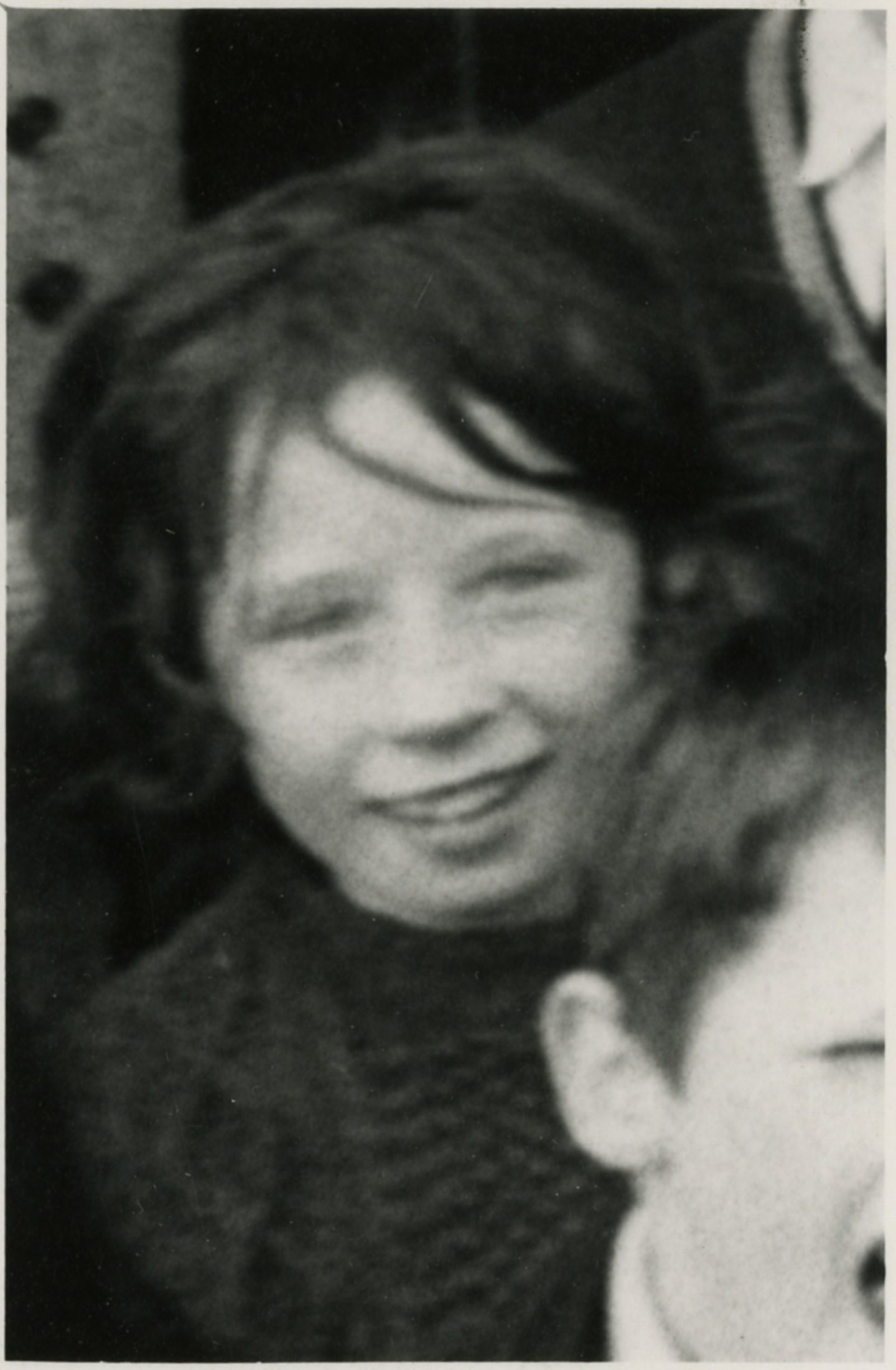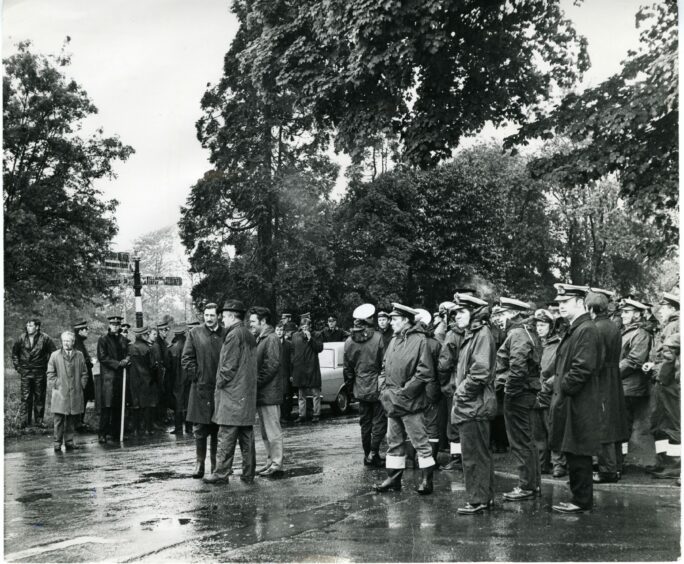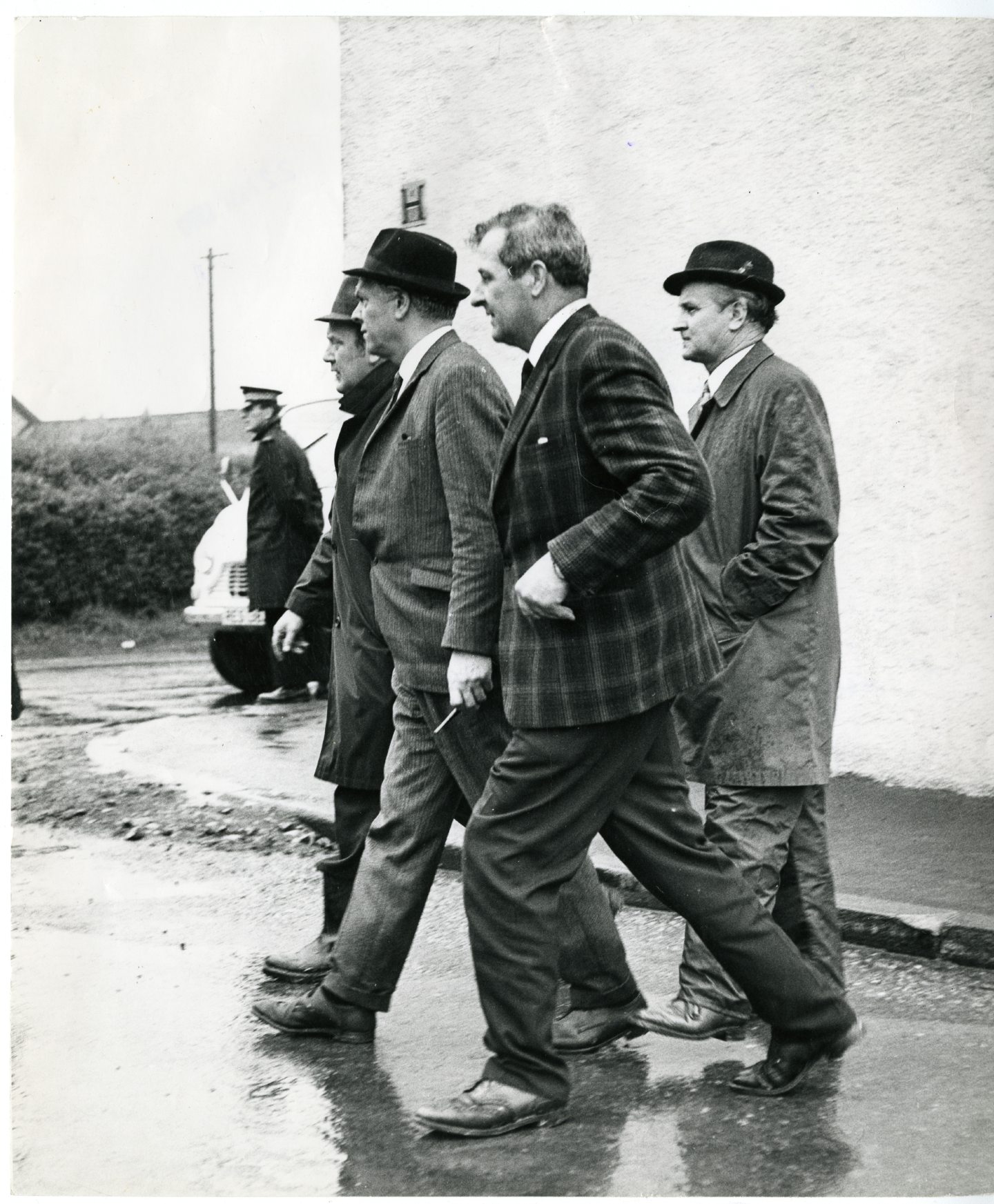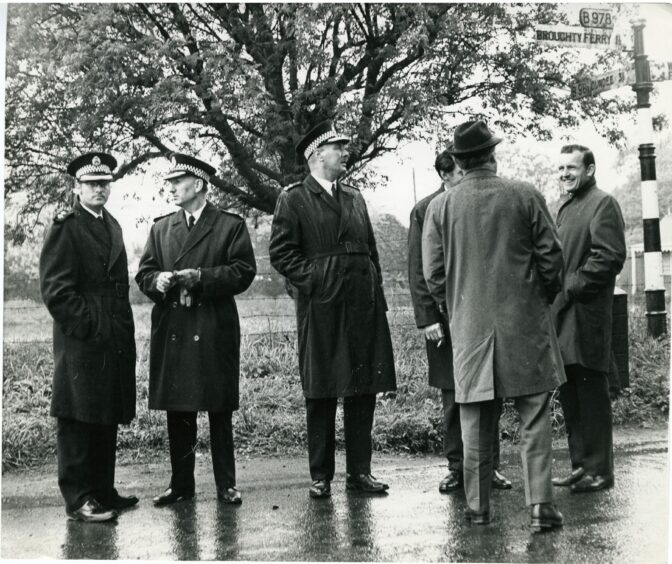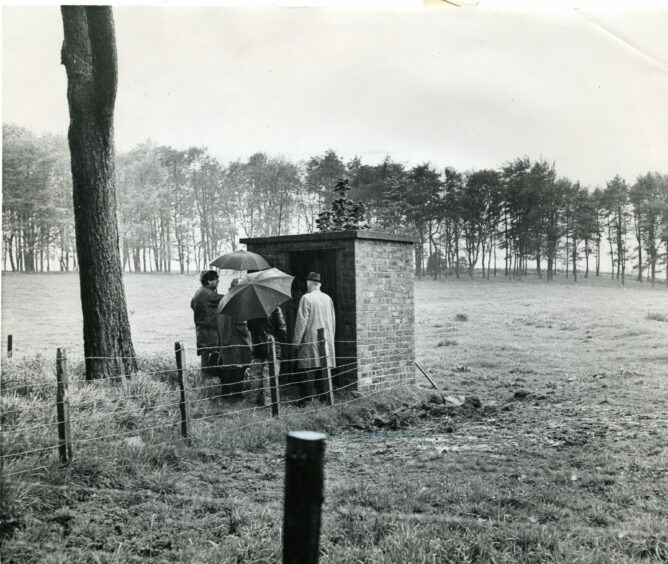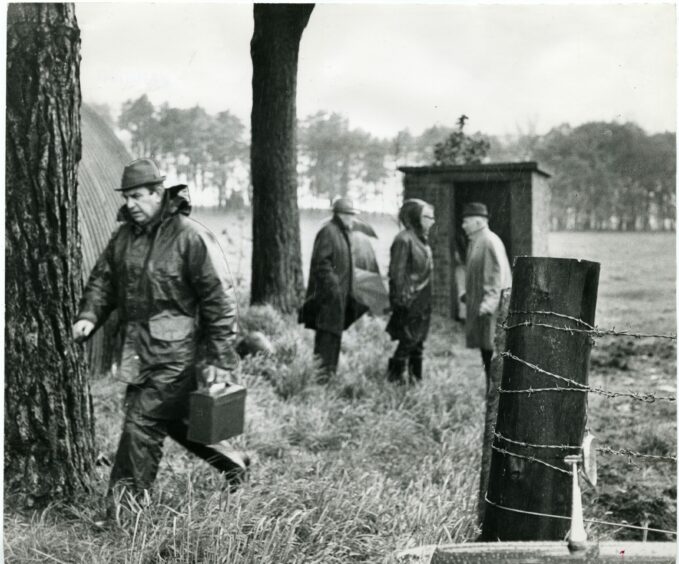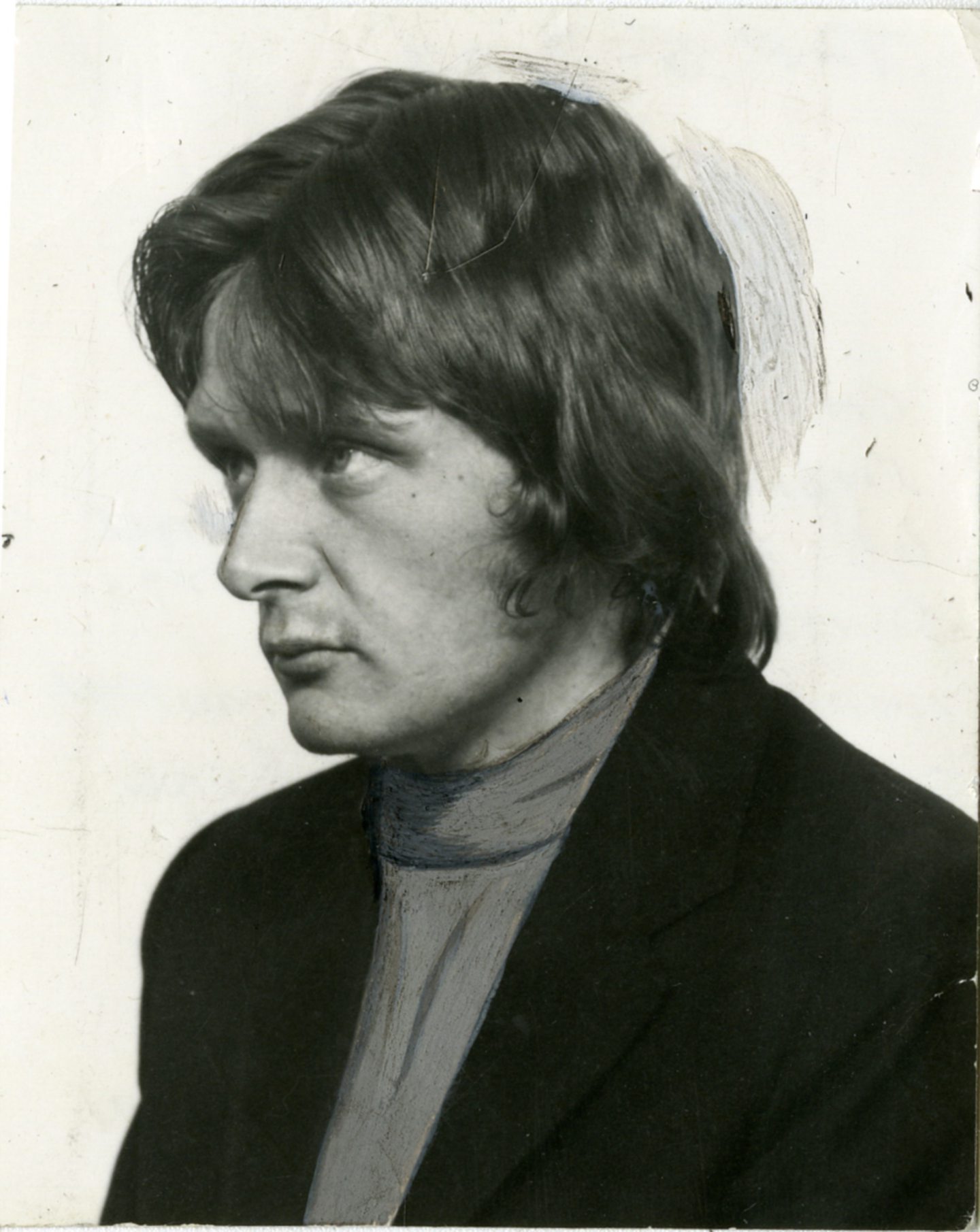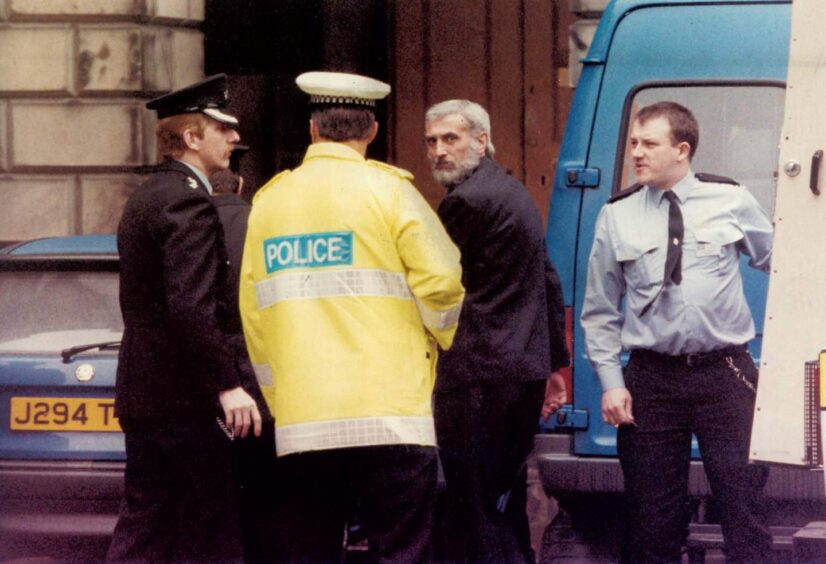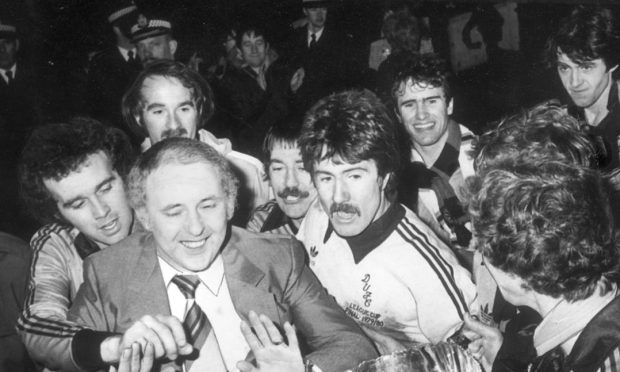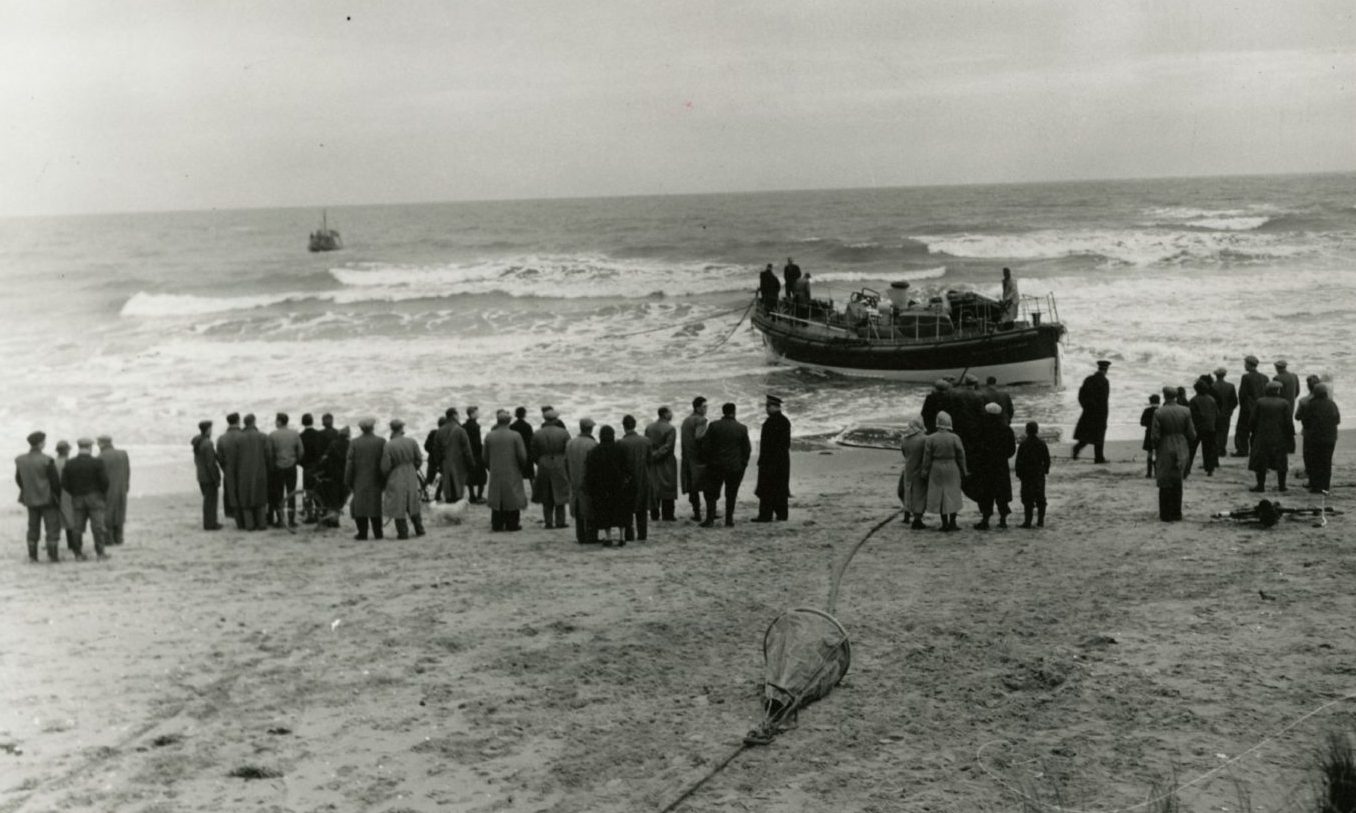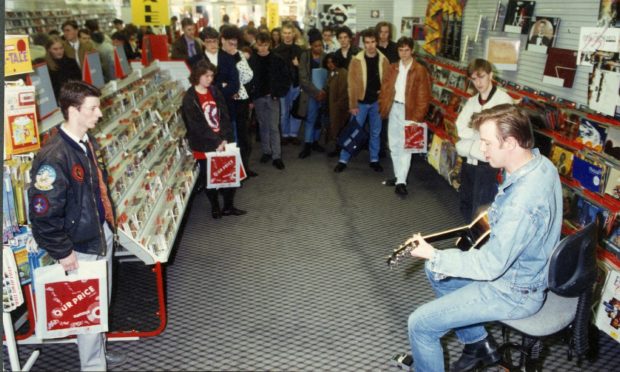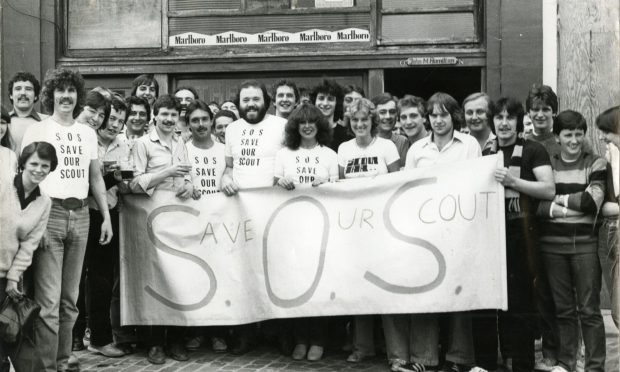The murder of Dundee schoolgirl Sharon Smith shook the city and haunted even the most hardened detectives.
The discovery of eight-year-old Sharon’s partially-clothed body in a small brick-built shed on May 23 1971 sparked one of the biggest manhunts the city has known.
It began with what seemed an innocuous break-in to a shop in Victoria Road on May 8 that barely merited a paragraph in the local paper.
The till was stolen, along with £1 and four razors, which set in motion a series of events that led to the murder of the Glebelands Primary School pupil.
She stood out because of her height and red hair and, by accounts, was a quiet girl.
Sharon was the eldest of three children and lived in Broughty Ferry Road with her mother and stepfather, who knew 24-year-old Charles Shepherd.
Shepherd was known to give children runs up and down the street on his scooter and was seen to drive away with Sharon at 5.15pm on Saturday May 22.
She was reported missing around 7pm.
A search took place on Saturday evening involving hundreds of police officers, TA and Royal Naval Reserve personnel, and even members of the Boys’ Brigade.
Shepherd said he had dropped her off at a sweet shop close to her home.
Police discovered an old-fashioned razor in the tool bag of his red and white Lambretta and bloodstains on it were subsequently found to belong to Sharon.
Some police officers searched all night in atrocious weather.
Police dogs were also used.
Missing-person posters were put up and the search operation continued from 4am on Sunday at first light and assistance from other police forces started to arrive.
Search headquarters were set up beside Baldovie pond after a tip-off that a child answering Sharon’s description was seen there on Saturday evening.
She was still on the scooter at the time.
As heavy rain began to fall, women volunteers arrived to serve hot drinks and soup to the bedraggled searchers before the news arrived that Sharon had been found dead.
She was discovered in an outbuilding in the grounds of the derelict Linlathen House, which was on the north side of the Dundee-Arbroath road near Claypotts.
There were stables opposite the spot.
Sharon had been savagely raped and her throat slashed with an open razor.
It was a murder that sickened detectives and revolted local people by its barbaric savagery and brutality.
A post-mortem examination was carried out by Dr Donald Rushton on Sunday afternoon before the announcement of a murder charge at 7pm.
Shepherd made no plea when he made a private appearance on May 24 1971 before Sheriff Cox and was remanded in custody for further inquiries.
He appeared from custody at Dundee High Court in July 1971 where he was sentenced to life in prison after pleading guilty to Sharon’s rape and murder.
He stood in the dock dressed in a bright yellow jerkin and brown trousers and was chewing gum and looking bored during sentencing.
Advocate Nicholas Fairbairn made no statement on his client’s behalf.
Lord Emslie told Shepherd he had pleaded guilty to a charge of unparalleled savagery and the only sentence he could pronounce was life imprisonment.
“I won’t waste words in heaping on you the condemnation that society feels for you.”
Shepherd was taken down from the dock to the cells by two police officers and was still chewing gum, as he had done throughout his short hearing.
He served time at Peterhead Prison, which was known as Scotland’s Alcatraz and home to some of the country’s most notorious sex offenders and murderers.
Bobby Donaldson was a relatively inexperienced member of the Dundee CID in May 1971 and was one of the detectives who arrested Shepherd.
The retired former Detective Inspector was 24 at the time and described it as “probably the most horrific case I dealt with in 30 years of policing”.
“Everyone from Detective Superintendent William Melville down was personally involved in the operation during some of the most atrocious weather I have ever seen.
“My pal and I were detective constables on back shift, part of a massive team, and it was just sheer chance we were the pair who carried out the actual arrest.
“Given the way things were back then, when there were none of the specialist family liaison resources the police have today, it was very much part of the ordinary detective’s job to keep in touch with the family.
“I knew Sharon’s folks, and it was very distressing to see what it did to them when the full horror of what had happened to this little girl came to light.
“No one deserves something like this to come into their life.
“We knew Shepherd was the man we were looking for and, having traced his scooter, we waited until he approached it and just grabbed him.
“I can remember clearly us going off shift in the early hours of the Sunday morning and then coming in later to hear the bairn’s body had been found.
“From a purely personal point of view, and although any crime involving children is always bad, I can honestly say the murder of Sharon Smith was one of the most horrifying cases I ever dealt with.
“In terms of brutality, the only thing that even begins to come close was one of the last major cases I worked on, the murder and disposal of the body of Gordon Dunbar in 1992.”
The slaying started to fade from public consciousness until 20 years ago when Shepherd was told he was eligible to apply for a parole hearing on human rights grounds.
He was never freed and died in prison more than a decade ago.
There were no tears to mark his passing.
More like this:
Murder trial heard how police exposed Law killer Robbie McIntosh’s web of lies
Angus murder victim Jolanta Bledaite’s life was cut short in a ‘truly monstrous and evil crime’
